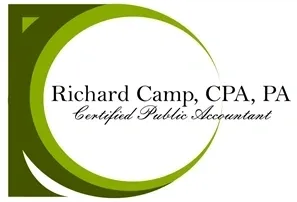De Minimis Safe Harbor
The tangible property regulations allow taxpayers that pay or incur amounts to acquire, produce, or improve tangible or personal property to elect to apply a de minimis safe-harbor expensing for amounts that they also expense for financial accounting purposes. The amounts allowable under the de minimis safe harbor are $2,500 or $5,000, depending on whether the taxpayer has an applicable financial statement (AFS). Taxpayers with an AFS may use this safe harbor to deduct amounts paid for purchases and/or improvements of tangible property for up to $5,000 per invoice or item, provided that this accounting procedure is in writing. Non-AFS taxpayers may use the safe harbor to deduct up to $2,500 per invoice or item. Non-AFS taxpayers are not required to have written accounting procedures, but they must expense amounts on books and records in accordance with accounting procedures existing at the beginning of the tax year.
If a taxpayer’s policy is to expense items above the $2,500 threshold for non-AFS taxpayers, it should still elect the de minimis safe harbor on the federal return because this will ensure that the IRS will not question the deduction of the items costing $2,500 or less.
Taxpayers must apply their applicable threshold to their books and records to benefit from this election and eliminate any book-to-tax differences when deducting assets or improvements that fall under their applicable threshold.
To elect the de mnimis safe harbor, the taxpayer should attach a statement titled “Section 1.263(a)-1(f) de minimis safe harbor election” to the timely filed federal tax return including extensions for the tax year in which the de minimis amounts are actually paid. The annual election does not require the filing of Form 3115, Application for Change in Accounting Method.
Richard Camp, CPA, PA blogs and all other multimedia content is provided for informational and educational purposes only and should not be construed as financial tax, accounting, legal, consulting or any other type of advice regarding any specific facts and circumstances, nor should they be construed as advertisements for financial services. Because accounting standards, tax law, and technologies are constantly changing, content in this blog could contain outdated information.
IRS CIRCULAR 230 NOTICE: To ensure compliance with requirements imposed by the IRS, we inform you that any U.S. tax advice contained in this website (or in any attachment) is not intended or written to be used, and cannot be used, for the purpose of (i) avoiding penalties under the Internal Revenue Code or (ii) promoting, marketing or recommending to another party any transaction or matter addressed in this website (or in any attachment).
Richard Camp, CPA, PA blogs and all other multimedia content is provided for informational and educational purposes only and should not be construed as financial tax, accounting, legal, consulting or any other type of advice regarding any specific facts and circumstances, nor should they be construed as advertisements for financial services. Because accounting standards, tax law, and technologies are constantly changing, content in this blog could contain outdated information.
IRS CIRCULAR 230 NOTICE: To ensure compliance with requirements imposed by the IRS, we inform you that any U.S. tax advice contained in this website (or in any attachment) is not intended or written to be used, and cannot be used, for the purpose of (i) avoiding penalties under the Internal Revenue Code or (ii) promoting, marketing or recommending to another party any transaction or matter addressed in this website (or in any attachment).
Richard Camp, CPA, PA blogs and all other multimedia content is provided for informational and educational purposes only and should not be construed as financial tax, accounting, legal, consulting or any other type of advice regarding any specific facts and circumstances, nor should they be construed as advertisements for financial services. Because accounting standards, tax law, and technologies are constantly changing, content in this blog could contain outdated information.
IRS CIRCULAR 230 NOTICE: To ensure compliance with requirements imposed by the IRS, we inform you that any U.S. tax advice contained in this website (or in any attachment) is not intended or written to be used, and cannot be used, for the purpose of (i) avoiding penalties under the Internal Revenue Code or (ii) promoting, marketing or recommending to another party any transaction or matter addressed in this website (or in any attachment).
